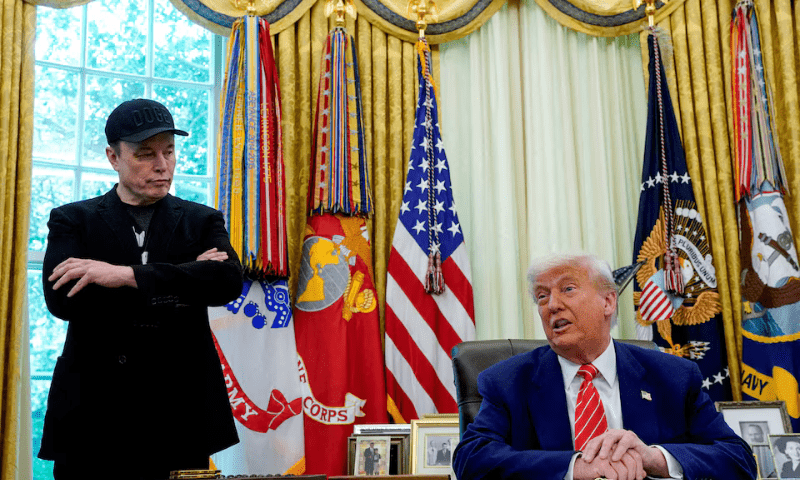Former U.S. President Donald Trump stated on Thursday that he would not revoke federal subsidies from Elon Musk’s companies, despite their recent public dispute over tax policies. In a social media post, Trump dismissed speculation that he would target Musk’s businesses, writing, “Everyone is stating that I will destroy Elon’s companies by taking away some, if not all, of the large-scale subsidies he receives from the U.S. Government. This is not so!” He added, “I want Elon, and all businesses within our Country, to THRIVE.”
Musk Denies Relying on Subsidies
Musk responded swiftly on X, asserting that the “subsidies” Trump referenced do not exist. He defended SpaceX’s NASA contracts, stating they were won competitively by offering superior efficiency at lower costs. “Moving those contracts to other aerospace companies would leave astronauts stranded and taxpayers on the hook for twice as much!” Musk wrote. The exchange comes as Tesla braces for the expiration of a $7,500 electric vehicle tax credit, which Musk warned could lead to a “few rough quarters” for the company.
From Allies to Adversaries
The relationship between Trump and Musk, once strong, has deteriorated sharply. Musk, who previously supported Trump’s campaign and served in his administration, broke ranks in July by criticizing the former president’s tax policies. Trump retaliated by threatening to cancel federal contracts with Musk’s companies. Reports suggest the White House is now reassessing SpaceX’s role in the $175-billion Golden Dome missile defense program, potentially opening bids to competitors.
Broader Implications for Musk’s Empire
While Musk has long advocated for ending subsidies, Tesla and SpaceX have benefited significantly from government incentives. The looming loss of EV tax credits adds pressure on Tesla, while SpaceX faces uncertainty over its defense contracts. As the feud escalates, the fallout could reshape the future of Musk’s ventures—and the industries they dominate.














